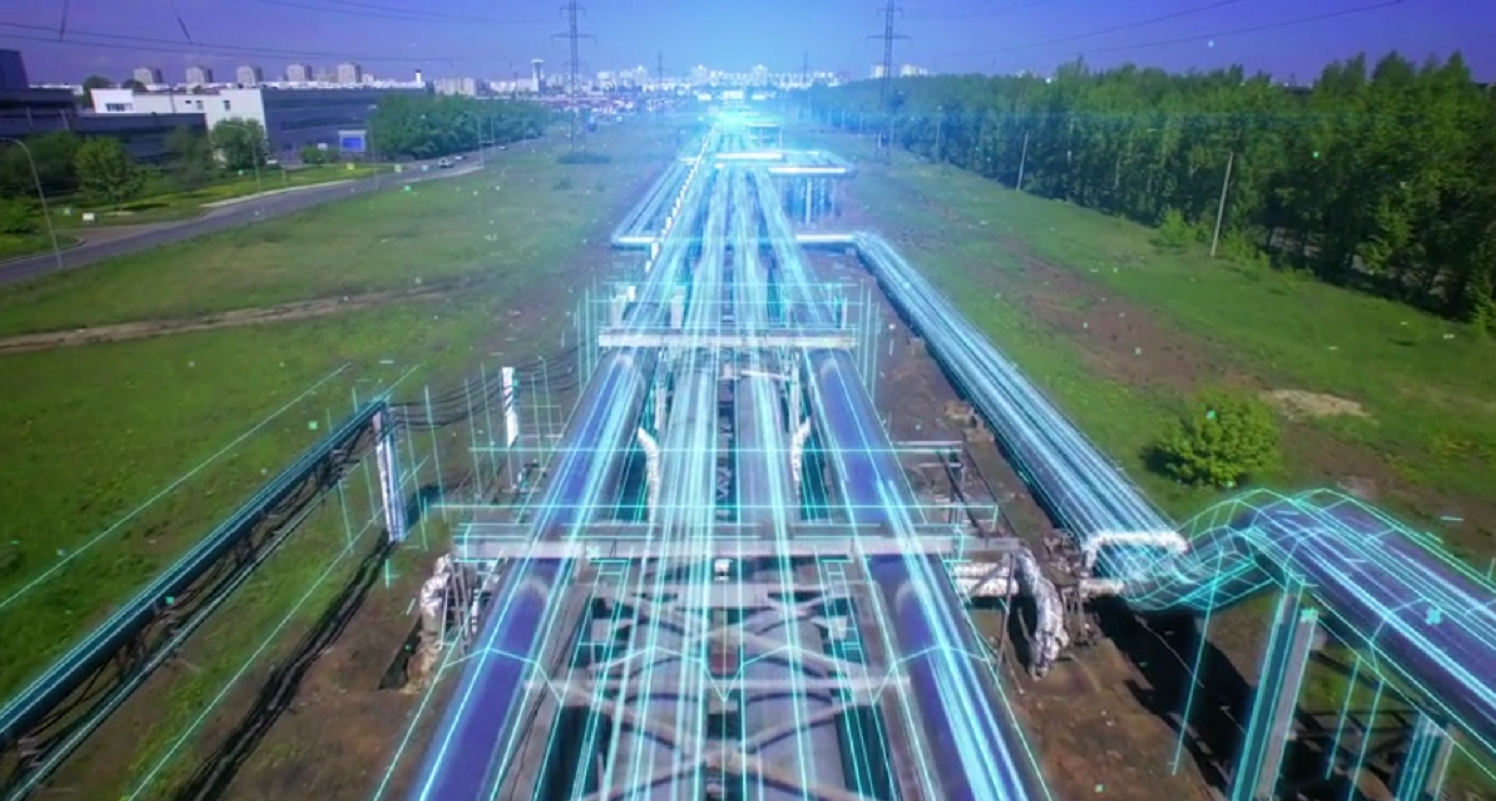Europe must come together as a green electricity and hydrogen union – analyst

Clean Energy Wire: How should Europe proceed to reduce its dependency on a few large supplier countries when it comes to energy imports? What’s the path forward for Europe in this new energy world?
Kirsten Westphal: We should enter into transformation partnerships with the fossil fuel producers we now have and are building new ties with. With countries such as the United Arab Emirates (UAE) it should be possible to say ‘we’ll take gas for another twelve years, but after that it should be climate-neutral hydrogen’. We have to hold joint discussions about how to phase out fossil fuels and phase in climate-friendly or climate-neutral molecules. This would pave the way for sustainable partnerships and would engage fossil fuel producing countries with the decarbonisation pathway.
Across Europe, we must expand power grids with interconnectors and establish hydrogen corridors to renewable resource-rich locations in our neighbourhood. If we don't manage to interconnect Europe's neighbourhood, including the Mediterranean region, in a mutually beneficial way of sharing value creation, we won't be able hold our ground in this competitive world, which has now become even more ugly with the Russian war against Ukraine. Europe needs to reorganise its ties with its neighbourhood. For Germany, the reorientation towards the Middle East and North Africa (MENA) region is unchartered territory. We in the EU have to get our act together as the new energy world will be more regionalised, fragmented and competitive.
Recent diplomatic efforts have focused on the Gulf region, but this also carries significant geopolitical risks. The UAE, however, is moving in the right direction with its 2020 peace agreement and connectivity projects with Israel. In general, the immediate European neighbourhood is also hugely important – including North Africa, the United Kingdom, Norway and hopefully also Ukraine. I also hope that the U.S. will remain a strong partner in NATO. However, from an energy perspective, the U.S. is basically on another planet because it is energy self-sufficient and will therefore always benefit from cheaper energy. This is a huge challenge for the competitiveness of European industry.
You call for hydrogen corridors. Germany and the EU bet on speeding up the ramp-up of hydrogen as one element in lessening dependence on Russian energy supplies. You are working for H2Global, a foundation that aims to support this endeavour. Can you explain how?
Hydrogen is a crucial element of a climate-friendly future economy. H2Global is an instrument that can be used for the stipulation of a hydrogen and derivatives market, which can lead towards a broad diversification of energy sources. The H2Global instrument can be tailored towards specific targets or partnerships. Currently, the first auctions are being prepared addressing the import of hydrogen and its derivates into Europe. We sign ten-year long-term off-take agreements with the producers of ammonia, methanol and jet fuel, providing investors with a business case to unlock investments today. On the off-taker side we will re-auction these products annually. This way, the H2 Global mechanism aims to give businesses security for planning and investments. I think this model could also be expanded across Europe and in the EU itself.
This is the hour of Europe. This might sound lofty, but I believe it's absolutely crucial that we bring Europe together as a green electricity and hydrogen union.
Where do you see the benefits of building up a hydrogen economy?
First of all, hydrogen presents an excellent opportunity for Germany to say ‘we will not go it alone this time in the EU’ on energy policy, and for the European Union and the rest of Europe to come together. The step to 'Europeanise' H2Global for the development of an EU market would be a major move in this direction. For me, this is the hour of Europe. This might sound lofty, but I believe it's absolutely crucial that we bring Europe together as a green electricity and hydrogen union. What is important now is to strategically build energy transformation partnerships. If we want to become less vulnerable, we first and foremost need broad diversification rather than only relying on and upscaling long-term contracts with a few major players, like we did with Russia. H2Global is an instrument that can be used for diversification.
Connectivity is part of such a strategic approach – it is being pushed by China with its Belt and Road Initiative, and we now have the Global Gateway strategy in Europe. I think this is exactly the way forward. However, we must look closely and identify the neighbouring countries that are best suited for establishing long-term connectivity via power grids, hydrogen pipelines or logistics chains for green hydrogen derivatives and products. Geographical location is one factor, shared values and norms are another. We live in a highly strategic moment: it is about an accelerated energy transformation as well as common value creation in strategic partnerships.
Aside from building up these new partnerships with sometimes problematic countries, what are the other challenges that must be overcome?
Another big hurdle for the ramp-up of hydrogen is regulation, which is still not complete on the one hand and extremely complex on the other. We all wait for the European Commission’s delegated act, which will set out the rules for what counts as green, or renewable, hydrogen and its derivative e-fuels in Europe. This will be crucial for the needed imports from abroad. There is a trade-off – I fear – between a quick technology ramp-up and strict sustainability criteria for projects.
Regulations are extremely complex in the EU. There is this paradox: we aim at sector coupling, but we have specific and sophisticated regulations for each and every sector, for example with regard to CO2 content and creditability under the ETS [EU Emissions Trading System]. This is a massive challenge for producers of green hydrogen and green derivatives, who are forced to predict the sector in which their products will be used.
Another problem is that we still lack business models and therefore investment security, which is partly due to the absence of a clear and appropriate regulatory framework. This is exacerbated by a chicken-and-egg problem. The fundamental challenge we face is that we have to kick off supply and demand simultaneously, and we also have to have the transport vectors and infrastructure in place. I don't think we can solve this problem with old instruments, such as capex [capital expenditure] support, regulated tariffs or with demand-side instruments, because we also need to establish supply chains, logistics and infrastructure.
I'm concerned that Europe will miss the boat here if we are too slow with adopting regulations and providing funds. Others, such as Japan or South Korea, do this exactly the other way around: they first establish logistics and supply chains, actors and responsibilities. H2Global aims at bridging supply and demand, and it enables the establishment of physical logistical chains as well as trading mechanisms. This is essential to creating a market, which I do not perceive as an end in itself, but rather an inclusive level playing field where all play by the same rules.
So, regulation is key at EU rather than German level?
Yes, the delegated act needs to specify what counts as green power and what as green hydrogen. This is the fundamental building block we need. The green product has to become a value.
What role can hydrogen play in the efforts to become less dependent on Russian energy supply and what sort of a time horizon are we talking about?
Hydrogen and its derivatives will not immediately solve a shortage, but in the medium run they can serve as substitutes and can help transform our energy consumption. Hydrogen is also a unique chance for the German and European industries to generate wealth with the use and development of technologies instead of simply importing resources as in the past.
Having said this, of course we need to work harder on efficiency, including circularity, as well as on the generation of renewable electricity. Yet, as all these have to happen simultaneously, I expect the green and climate-neutral molecules to assume a decisive role faster, in bigger volumes and in more sectors than previously thought. Imports of green hydrogen and derivatives will be an important element of the energy transformation. And not only this -- they are a centrepiece for the industrial revolution needed for carbon-neutrality and for Europe to remain a technology leader in this field. International cooperation is about imports, too. If we look at hydrogen and derivates, we at H2Global aim to receive the first derivatives supplies in 2024 or 2025.

